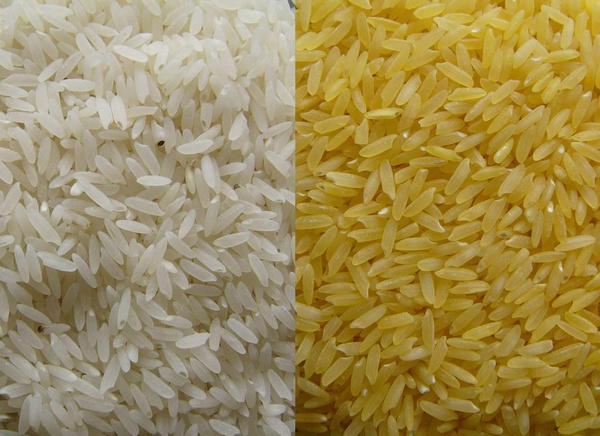The argument resonated with a lot of people, including university scholars, so when the opportunity to solve the vitamin A deficiency issue in the developing world became available with genetic engineering, it was an independent group of scholars that developed a GMO rice with higher levels of beta-carotene. They made this Golden Rice available for free.
It quickly ran up against a problem brought about by such naiveté. Environmental groups are dominated by highly paid lawyers and marketing groups constantly working with allied journalists. And they are not paid to protest companies at all, they get paid to protest science, it is just part of a war of extinction against companies. They prepared a 'we are only against companies' landscape hoping people would walk into it. And Golden Rice did. Lacking a corporate parent of its own, a public domain seed that could literally prevent kids from going blind or dying was hamstrung by lawyers at NGOs. The science side needed to rely on sporadic pro bono help.

Decades later, science finally won in the Philippines, Golden Rice received government approval even after eco-terrorist attacks and promises to do it again, Vitamin A Deficiency (VAD) can now be manageable using food rather than western charity. That's is good for everyone.
But there are other social factors that replace the lawyer phalanxes of the opposition now. To use the seed, someone has to plant it. Leveraging that, activists have now pivoted to noting that poor families in crowded city areas lack land and since it was bred into the lowland varieties of rice, IR-64 and RSC-82, some farmers won't plant it. It's rare that farmers won't plant a crop that has consumer demand but I am not a western white social sciences scholar, I am just a guy who grew up on a farm surrounded by other families who farmed, so perhaps anthropology academics in the U.S. understand farmers in Asia better than Asians do.
Or not. Either way, activists smarting from losing one battle on poor people will be cheered by a new paper on based on talking with 115 rice farmers in the Nueva Ecija region, the 'rice bowl' of the Philippines, who say they are in no rush to try something new when it is only now approved and they have not even gotten a seed yet.
Agro-economist Chuck Benbrook used to write these kinds of papers too
If that is true, that the free market killed a product environmental attorneys being paid tens of millions of dollars could not, then it seems like a real misstep on the part of environmental groups. But they don't misstep very often. It is more likely these claims are just another front in their war on poor people. Surveys are not science, behavior is what counts. On surveys, Californians don't lead the U.S. in vaccine denial, because they couch it in language about choice and concerns about science, but when it came to behavior they kept so many kids in San Francisco and Berkeley and LA from getting vaccines the more sane inland voters forced a law to stop it. And on surveys, before they even got a seed, hand-picked farmers might say they are skeptical - which will be true until they can make money.
Economist Chuck Benbrook used to write these kinds of papers for the activist community, things like in surveys strawberries grown using organic pesticides had better "mouth feel" than those grown using conventional pesticides so farmers should charge more for organic. It was less convincing than 'people won't want their kids to not go blind using rice if western charities will give them supplements' rationalization but not by much.
The White Savior Industrial Complex is not done yet
Washington University at Saint Louis Anthropologist Professor Glenn Davis Stone is often critical of Golden Rice and essentially all modern agriculture, readily cooing at revisionist slams on Norm Borlaug (DOI: 10.1111/geoj.12297) and the Green Revolution as they occur, chiming in to agree with a fellow anthropologist (DOI: 10.1111/aman.12648) that a farmed salmon is not salmon at all(!), and insinuating that GMOs Are A Conservative Conspiracy when 94 percent of the biologists supporting the science in an overwhelming consensus are liberals. Though it is always odd for people who claim to care about agriculture to not be concerned that 48,000,000 wild salmon are killed each year to feed our Mediterranean Diet fad - that is just in two Alaskan areas - it is typical.
Professor Stone wears his bias on his sleeve while pretending to be objectively critical but few are fooled. It is true the situation is not perfect, but that is because activists opposed it every step of the way. We'd never have gotten cars if academics a hundred years ago said 'cars don't have anti-lock brakes. stay with the old ways.' Farmers are not yet ready because getting approval in even one developing country came as somewhat of a surprise. The lack of a corporate owner, the thing that activists said was vital to food acceptance, kept it from being approved for decades. It's like environmentalists suddenly caring about the cost of a nuclear plant when they blocked nuclear development for decades, making the start-up cost high.
Rather than continue to undermine food independence in poorer countries by noting that charity from western nations providing supplements has solved part of the problem, it would be most helpful if the White Savior Industrial Complex stopped pretending these countries are helpless without them.
Countries want to grow their own food, they want it to be nutritious. Let's make it possible instead of making the perfect the enemy of the good.




Comments